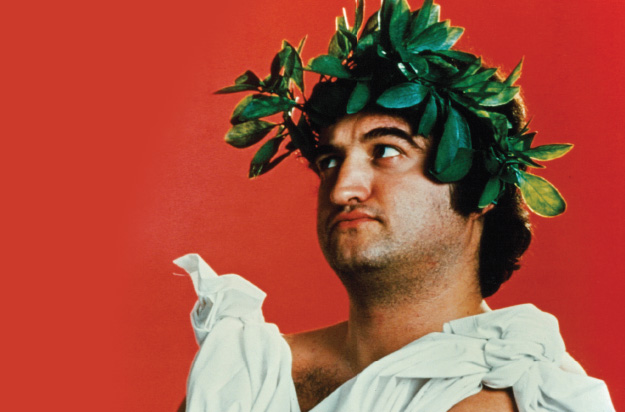Winter 2016: Energy Evolution
From carbon dioxide conversion to landfill mining, researchers at UTA are seeking viable alternative energy options.
Skip to content. Skip to main navigation.
From carbon dioxide conversion to landfill mining, researchers at UTA are seeking viable alternative energy options.
Found in everything from space shuttles to dental fillings, composite materials have thoroughly infiltrated modern society. But their potential is still greatly untapped, offering researchers ample opportunity for discovery.
Within the particle showers created at the Large Hadron Collider, answers to some of the universe’s mysteries are waiting.
Model systems like pigeons can help illuminate our own evolutionary and genomic history.
UT Arlington's tiny windmills are bringing renewable energy to a whole new scale.
The stability of our highways, pipelines, and even manholes is reaching a breaking point.
Scientists believe they have discovered a subatomic particle that is crucial to understanding the universe.
UT Arlington researchers unlock clues to the human body’s most mysterious and complex organ.
UT Arlington researchers probe the hidden world of microbes in search of renewable energy sources.
Wounded soldiers are benefiting from Robert Gatchel’s program that combines physical rehabilitation with treatment for post-traumatic stress disorder.
Tiny sensors implanted in the body show promise in combating acid reflux disease, pain and other health problems.
Nanotechnology researchers pursue hybrid silicon chips with life-saving potential.
Biomedical engineers combat diseases with procedures that are painless to patients.

Pop culture depictions of academia, like those in the movie Animal House, may be more influential than we realize
Anti-intellectualism—or the devaluing of scholarly activities—is often considered an American phenomenon. One prominent scholar believes that it dates back to the founding of the country, when the new republic was opposed to anything that was connected to the Old World. Other researchers have linked it to our political choices, as populist candidates often win the White House over their more erudite opponents—such as Andrew Jackson versus John Quincy Adams, Dwight David Eisenhower versus Adlai Stevenson, and, of course, Donald Trump versus Hillary Clinton.
Little wonder, then, that some candidates have downplayed their academic credentials to gain the populist vote; for example, when Teddy Roosevelt sold himself as a Rough Rider rather than a Harvard-educated blueblood, or when Bill Clinton, a Yale Law School graduate and Rhodes Scholar, emphasized his humble Arkansas roots while running against the elite George H. W. Bush.
These anti-intellectual values are reflected and reinforced in popular media, particularly in the depiction of higher education, which is the embodiment of intellectual pursuits. The recently published Media Representations of American Higher Education: The Anti-Intellectual University and Other Depictions (Palgrave MacMillan), which I co-edited with Pauline Reynolds, explores how popular media continues to propagate and promote anti-intellectual views through its depictions of colleges and college life.
These critical views of higher education often specifically target faculty because they are direct symbols of the intellectual enterprise. Whether it’s a novel as old as Nathaniel Hawthorne’s Fanshawe (1828), a modern video game like Fallout 4 (2015), a beloved film like Animal House (1978), or a short-lived television series like The Education of Max Bickford (2001-02), faculty are depicted as petty, cynical, immoral loners. They show little to no regard for their students and belittle the work of their colleagues. On occasion, their behavior sometimes even leads to an animus outside the university. For example, in Fallout 4, the community worries that the scholarship being conducted inside the ivied walls may jeopardize their safety.
Although this faculty portrait is consistent over time regardless of the medium, there are a few exceptions. In some video games and comic books, professors may be shown helping the protagonists fulfill their missions and overcome the evils confronting them. Yet although offering critical assistance, faculty typically occupy only isolated, secondary roles in these formats.
While such media images may seem benign, my colleagues and I believe they fuel anti-intellectual sentiment—which, in turn, may explain the shifts in public attitudes regarding higher education in general and the value of a postsecondary education more specifically. These simmering beliefs may be part of the reason for the current challenges affecting higher education, such as the significant decrease in state funding for public universities and the recent attacks on academic freedom, among others.
We hope our arguments give support to others interested in exploring public views of institutions of higher education in a new context. And we encourage everyone to start seeing media as not mere entertainment, but as reflecting, reinforcing, and edifying views that can lead to potentially damaging results.
References
Addis, K. (Executive Producer). (2001-2002) The Education of Max Bickford [Television series]. USA: CBS.
Bethseda Game Studios. Fallout 4 [Video Game] (2015). United States: Bethseda Softworks.
Bioware. Jade Empire [Video Game] (2005). Canada: Microsoft Game Studios.
Hawthorne, N. (1828). Fanshawe. Boston, MA: Marsh and Capen.
Hofstadter, R. (1963). Anti-intellectualism in American life. New York: NY: Vintage Books.
Lim, E. T. (2008). The anti-intellectual presidency: The decline of presidential rhetoric from George Washington to George W. Bush. New York, NY: Oxford University Press.
Reitman, I., & Simmons, M. (Producers), & Landis, J. (Director). (1978). National Lampoon’s Animal House [Motion picture]. USA: Universal.
Whitfield, S. J. (1978). “Second Thoughts: ‘The Eggheads and the Fatheads’: Anti-Intellectualism in American Life by Richard Hofstadter.” Change, 10 (4), 44-64.
Photograph by Archive Photos / Stringer